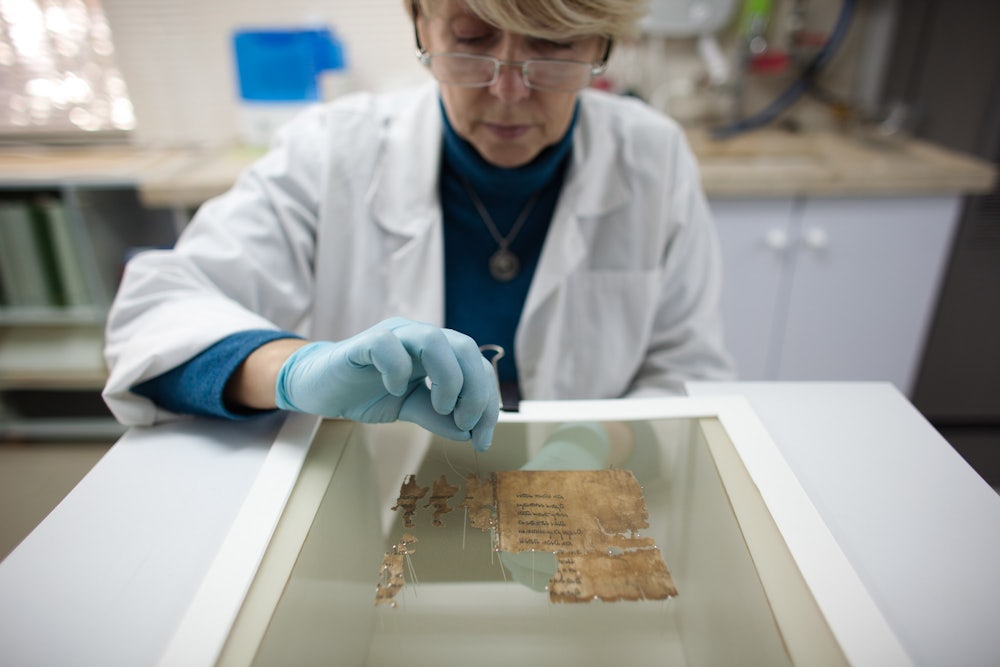When the Museum of the Bible opened in Washington, D.C. last November, it gave pride of place to fragments that were purportedly part of the Dead Sea Scrolls, documents that date back to the early Christian era. But even before the opening, some scholars advised caution. Most authentic Dead Sea Scroll fragments are held by the Israeli Antiquities Authority. Since 2002, a new cache of alleged ancient fragments started appearing in the international antiquities market but most of those have turned out to be fake. Most notoriously, an alleged 2nd-century fragment seeming to suggest that Jesus was married received global attention in 2012. Although vouched for by a Harvard scholar, it was ultimately ruled a fraud.
Now CNN is reporting that the Museum of the Bible, after submitting the fragments to testing by German scholars at the Bundesanstalt für Materialforschung und-prüfung, admits at least five of their Dead Sea Scrolls are frauds. According to CNN, the German scholars, the fragments “show characteristics inconsistent with ancient origin and therefore will no longer be displayed at the museum.”
The Museum of the Bible was financed by the Green family, evangelical Christians who own the the Hobby Lobby chain. The Greens spent a fortune on both the fragments and the museum (which cost half a billion dollars to build).
Modern forgers are quite sophisticated. Discussing the married Jesus forgery, Ariel Sabar wrote in The Atlantic that, “A determined forger could obtain a blank scrap of centuries-old papyrus (perhaps even on eBay, where old papyri are routinely auctioned), mix ink from ancient recipes, and fashion passable Coptic script, particularly if he or she had some scholarly training.” You’d have to imagine a fair amount of work went into the Bible museum’s fragments.
